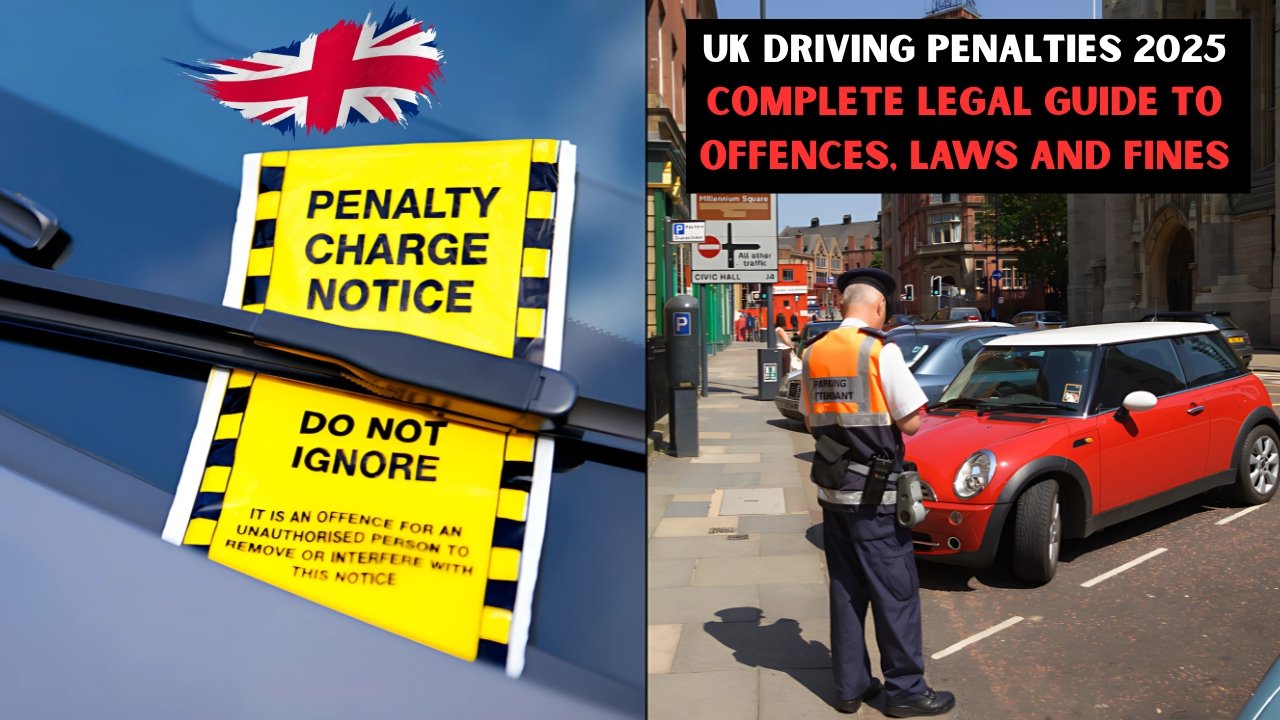In 2025 and beyond, the UK has driven the age of infrastructure and the consequent road-related offences such as the boundaries of legislation and the severity of consequences that follow to unprecedented historical extremes. Following the 2025 mandate Sentencing Collins frameworks and unique components of the law as delineated in notable case laws like Clarke V CPS, offences such as all other types of drink and case specimen refusals now attract the heaviest of consequences. These conditions alter not only the perpetrators on record; repercussions or consequences extend to professional fields, international mobility, and personal professional life.
Drink Driving: Limits and Consequences
Under Section 5 of the Road Traffic Act of 1988, the offence of driving a motor vehicle while undergoing the effects of drinking or using any other such substance that is prohibited in the Act is prescribed. The least prosecutable of the offences is the crossing of the legal limit, which is: 35 micrograms of alcohol in 100 m liters of breath; 80 micrograms in 100 m liters of blood; or 107 micrograms in 100 m liters of urine. Such offences, once proven to have been committed, attract penalty consequencing in disqualification of the driving licence, dreaded payment of fines that are prescribed as unlimited, and one of the offences other than the two which is the crime of imprisonment. Scotland, being stricter, applies to all people, her subjects and the foreign, still lower restrictions on the use of alcohol, to a motor vehicle being driven.

| Offence Type | Fine Range | Disqualification Period | Imprisonment |
|---|---|---|---|
| Drink Driving | Unlimited | Min. 12 months | Up to 6 months |
| Refusal to Provide Specimen | Unlimited | Min. 12 months | Up to 6 months |
| Repeat Offences | Unlimited | Min. 3 years | Up to 6 months |
| No Licence | Up to £1,000 | Discretionary | – |
| No Insurance | Up to Unlimited | Possible | – |
Legal and Medical Infraction of Sample Review
Legally and medically speaking, the refusal to provide a breath, blood, or urine sample at the police station or the side of the road is an offence under the revised Road Traffic Act. Courts often express the same concern over a refusal of this demand as they do over a case of drink-driving. Conviction and subsequent charges depend on the presumptive validity of the police demand and the absence of any excuse that can clinically justify the refusal, in case of something as a psychological condition or asthma. The mandates, in this case, will the same as a drink-driving conviction.
Evermore Professional and Personal Hazards
Personal and professional conduct is most likely to be impacted as the consequences of repeated offences is detrimental, especially if the defence is convicted a second-time within a decade, facing a minimum of three years disqualification. Professional conduct suffers as the DBS checks automatically screen out claims with hiring in the health, education and finance sectors thereby blocking opportunities in relation to driving charges, alongside further legal struggles that stem from reckless driving.
Defence and Rehabilitation Options
Defending requires strategy in how to overcome technical and medical associated challenges as the burden of proof rests the need for disambiguations of the court’s claims. Attribution errors, technical miss hits, and actual medical incapacitation could form the basis of a defence, but they really need to be justified. Rehabilitation programmes for court bans of over one year may result in disqualifications being cut by a quarter. Courts may also offer these disqualified persons as well as legal representation so as to quickly consult on strategies to preserve evidence, fulfilling the request of the court.
Your insurance may go up, and your employer risks losing a commercial fleet policy. Employees charged with a conviction may significantly expand the company’s operational risk. Employees with driving disqualifications also face restrictions on international travel. Entering the USA, Australia, and Canada is limited in these locations and requires strict documentation. With restrictions of driving with over a stated blood alcohol level or refusals to drive accusations, one may face a lost visa offer or for new waiver requirements.